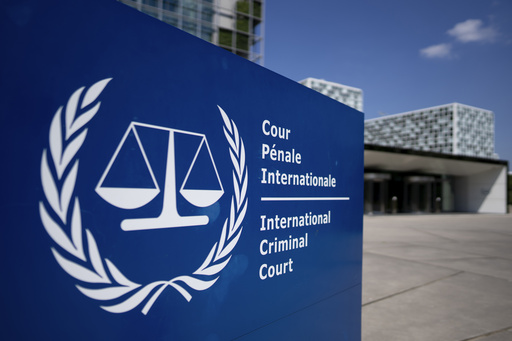Dozens of countries, academics, and rights groups have submitted legal arguments either in favor of or against the International Criminal Court’s authority to issue arrest warrants in its investigation into the war in Gaza and the Oct. 7 attacks by Hamas in Israel. The submissions were made this week as a panel of judges reviews a request by the court’s chief prosecutor for warrants against Israeli Prime Minister Benjamin Netanyahu, Defense Minister Yoav Gallant, and Hamas leaders.
The court’s prosecutor, Karim Khan, sought warrants in May, accusing Netanyahu, Gallant, and three Hamas leaders — Yahya Sinwar, Mohammed Deif, and Ismail Haniyeh — of war crimes and crimes against humanity in the Gaza Strip and Israel. Haniyeh and Deif have since been killed, while Sinwar was named Hamas’ new leader after orchestrating the October 7 attacks.
Israel has strongly opposed the court’s warrants for its leaders, asserting that it adheres to international law in responding to the conflict in Gaza incited by Hamas. Netanyahu described the request for warrants as distorted. Various written submissions from different entities are likely to prolong the judges’ decision on whether to issue warrants, despite a 2021 ruling affirming the court’s jurisdiction over territories occupied by Israel in the 1967 Mideast war.
International law expert Owiso Owiso expressed that the matter was settled conclusively in 2021 and should not have been revisited. The legal arguments mainly revolve around the court’s authority to issue warrants for Israeli leaders in light of a clause in the 1993 Oslo Accords peace treaty. Many of the filings debate whether the Palestinians can delegate the power to issue warrants to the court under the terms of the accords, which were aimed at establishing a two-state solution between Israel and the Palestinians.
Israel did not present written arguments, but the United States, its staunch ally, stated that the Oslo Accords granted Israel exclusive jurisdiction over acts committed by Israeli nationals, implying that Palestinians could not have given the Court jurisdiction they did not possess. Professors like Adil Haque cautioned against accepting this interpretation, highlighting potential complications in the court’s jurisdiction if it were to be fragmented by national laws and agreements.
The ICC, which has 124 member states including the State of Palestine (while Israel and the US do not accept its jurisdiction), is considering submissions from varied perspectives. The Palestinians emphasized in their filing that embracing the argument would endorse a system where politics and impunity take precedence over justice and accountability.
A separate dispute at the International Court of Justice has also arisen, where South Africa, backing the Palestinians, has accused Israel of genocide in the Gaza conflict. The case at the ICJ, located in The Hague, is expected to take several years to conclude. The United Kingdom initially sought to submit a brief on this matter but withdrew its request, sparking a series of further filings now under review.
